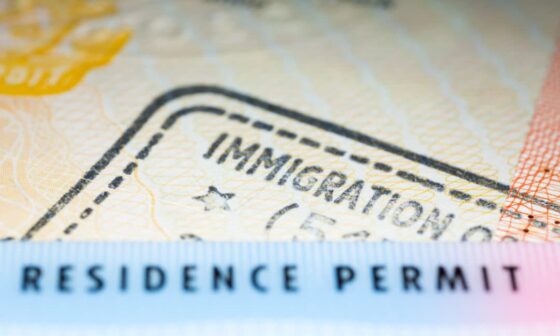Are you a Nigerian eyeing the great land of maple syrup? Well, you are not alone. As of recently, Nigerians have recorded an increase in migration to Canada. There are over 70,000 people of Nigerian descent who live, work, and study in Canada. If you are looking to move to Canada and need guidance, you are at the right place because I will break down the most popular migration route from Nigeria to Canada and how to apply for it, including their eligibility and required documents. Stay tuned!
Why Migrate From Nigeria to Canada?
Canada is a destination of choice for most Nigerians for the economic importance it offers in various sectors typically covered by Nigerian professionals, namely the oil and gas sector, information and communication technology (ICT), health, and other science and engineering-related fields.
Canada can also offer many advantages, such as political stability, a highly developed healthcare system, an internationally recognised education system, and a thriving economy.
Most Nigerians arrive in Canada as skilled workers in the economic class. As Canada continues to increase its immigration levels year after year, the Nigerian diaspora in Canada is expected to grow even more from its current numbers. Over 70,000 Canadians of Nigerian descent currently call Canada home, and this number will continue to grow every year.
Key points
- Recent trends show a significant increase in migration from Nigeria to Canada, with over 70,000 Nigerians currently living, working, and studying there, highlighting Canada’s appeal as a top destination for Nigerian immigrants.
- There are several pathways for Nigerians to obtain permanent residency in Canada, including the Express Entry system, provincial nominee programs, family sponsorship, and various business immigration options, each with specific eligibility requirements and application processes.
- Canada offers numerous benefits for Nigerian immigrants, such as political stability, a robust healthcare system, and strong economic opportunities in various sectors, making it an attractive choice for those seeking a better quality of life and professional growth.
What Are the Routes for Canadian Immigration From Nigeria?
If you plan on moving to Canada for an extended period or permanently, then you should look into a route that offers long-term or has the option of permanent residency. The Canadian temporary visa lasts for 6 months, and it is best if you avoid it unless it has been specifically instructed by the sponsor, who intends to arrange permanent residency for you once you have arrived in Canada.
In this section, I will take you on the 4 common permanent entry routes to Canada. They include:
- Express Entry
- Provincial Nominee Programs
- Family Sponsorship
- Startup and business options
#1. Express Entry
This program offers skilled workers in Nigeria the opportunity to migrate to Canada and gain residency as soon as possible. Through this route, over 110,000 people are offered residency.
Express entry is a common route for Canadian immigration for Nigerian workers with extensive work experience in certain skill trades. To consider this route, you must have proficient language skills.
As a Nigerian, there are three separate ways for Canadian immigration through express entry. They include:
#1. Canadian Experience Class
This is basically for Skilled workers who have at least three years of experience in Canada. Before you apply for this visa, you need to have already lived and worked in Canada for at least three years. This may look like:
Advertisements
- Have you worked under temporary residence status during your work experience?
- Have you worked full-time job for at least 30 hours a week for 12 months?
- Have you worked a full-time job of around 20 hours per week for 24 months?
#2. Federal Skilled Worker Program (FSWP)
It is for skilled workers who meet specific higher education and language criteria and have work experience in their field. To apply for FSWP, you must meet the following criteria:
- A Canadian education credentials (certificate, degree or diploma) or foreign equivalent with an education credentials assessment reports
- Evidence that you have the financial means to support yourself and your family (if applicable) in Canada
- A minimum of 67 points on IRCC’s immigration selection factors
- An IELTS or CELPIP test proving your French or English language abilities (reading, writing, speaking, and listening) meet grade 7 in the Canadian Language Benchmarks
- You can prove that you have 12 continuous months of full-time paid work experience within the last 10 years in a skilled occupation that is listed under the National Occupational Classification (NOC) TEER category 0, 1, 2, or 3. Examples of jobs that fall under this category include dental assistants, financial advisors, laboratory technicians, and office managers
#3. Federal Skilled Trades Program (FSTP)
This is for skilled workers with job offers from a Canadian company or workers with valid qualification certificates. To be eligible for this programme, you must:
- Meet proficient language levels in English and French.
- Meet the requirements for a specific job listed under the FSTP, or have a relevant certificate or qualification to prove your experience or abilities in the field.
- Receive a full-time work offer from a Canadian company for at least one year or a qualification issued by Canadian government authority.
- Have at least 2 years of full-time or 4 years of part-time work experience in one of the listed skill trades. You must have gained this experience within five years of applying. Unpaid or volunteer experience won’t count towards your work experience time.
Jobs eligible under the FSTP route are:
- Chefs, butchers, cooks, and bakers
- Occupation in industry surrounding processing, manufacturing and utility
- Transportation officers and controllers
- Occupation related to aircraft assembly
- Occupation in industries surrounding natural resources, agriculture and related fields ( supervisors, operators, and controllers)
Eligibility for Express Entry
A point-based system where your work experience and personal circumstances are ranked based on valuability or need is called the Comprehensive Ranking System (CRS). You can achieve up to a total of 1200 points.
Applicants with the highest comprehensive ranking system score receive an invitation to apply for permanent residency every 2 weeks from Immigration, Refugees, and Citizenship Canada (IRC). The CRS is based on the following factors:
- How transferable is your skilled work experience?
- Factors regarding family living in Canada, if applicable
- Factors regarding your accompanying spouse or common-law partner, if applicable
- Core human capital factors which includes age, educational credentials, language abilities, and French or Canadian Experience
- Employment or nomination factors such as job offers from Canadian companies, invitation to study in Canada or provincial nomination
#2. Provincial Nominee Programs ( PNP)
Canada is the second-largest country in the world and is situated across a vast territory, and each of the 10 provinces has a unique landscape, demographic, and worker needs. Some provinces are more densely populated than others, and certain provinces have a significant lack of skilled worker availability in particular sectors. You must contact the province of interest and find out whether you meet the minimum requirements of its nomination program. The 10 provinces that offer PNPs are:
Advertisements
- Alberta
- British columbia
- Manitoba
- New Brunswick
- Newfoundland and labrador
- Northwest territories
- Nova Scotia
- Ontario
- Prince Edward Island
- Saskatchewan
- Yukon
These programs are also offered to foreign businesses if they are willing to move to a specific region of Canada that is suggested by Canadian authorities. Ontario and Alberta are particularly popular PNP choices for Nigerians.
#3. Family Sponsorship
Individuals with Canadian permanent residence or citizenship are able to sponsor family members through the dependent visa, which offers the family member(s) from abroad permanent residence in the country.
Spouses, civil partnerships, and children are given priority, though there are options to sponsor other relatives too. To sponsor a dependent, the person in Canada must be:
- Living in Canada when the dependent becomes a permanent resident
- Above 18 years old
- A Canadian citizen or a permanent resident
Priorities are generally given to:
- Children of the spouse under 22 years old who are not married or in a common-law relationship.
- Spouses, common-law partners or conjugal partners of the sponsor
- Children of the sponsor above 22 years old with a mental or physical impairment; this means that they cannot support themselves financially
If you are to take this route for Canadian immigration, the sponsor must prove they are financially stable and can support the dependent(s) at least by covering basic needs. Both the dependent and sponsor will fill out a separate application, which must be submitted together. If the person being sponsored is under 18, they should have a guardian complete their application for them.
#4. Startup and Business Canada Immigration Route
This route offers exciting opportunities to Nigerians who own businesses, are entrepreneurs, or are self-employed. They include:
- Self-employed Visa
This visa program is available for Nigerians who own a small business, rarely hire new staff, and are mostly their own employees. You must have at least two years of self-employed experience working in cultural or athletic activities that could be valuable to Canada’s industries to be eligible.
- Start-up Visa
It is available for foreign entrepreneurs who could build a Canadian business, which is:
- Innovative
- Can compete a global scale
- Can offer more jobs
In order to be eligible, you need to:
- Own a qualifying business
- Meet the language requirements
- Bring enough money to settle
- Receive a letter of support from the designated organisation
- Intra-Company Transfer (ICT)
This is for people who already own a business in Nigeria and want to expand their business in Canada. The ICT route allows you to move key members abroad. After living and working in Canada for 1 year on an ICT permit, Nigerian nationals become eligible for permanent residency.
How to Migrate to Canada From Nigeria
Just like any other foreign country, relocating to a new country takes a considerable amount of time and preparation. The application process and cost will differ according to which route you take, and if you are bringing any dependents. You will be consular more if you are planning to stay permanently in Canada than when you are requesting temporary residency.
Generally, applications can take up to six months of processing time, with temporary visas likely to take up to 1-2 months. However, it can take longer, depending on your particular circumstances. It should be noted that to prove that you have the means to support yourself while in Canada, you will usually need to show that you have the equivalent of around 14,135,675 naira (13,000 Canadian dollars).
If you decide to go through the economic immigration route to Canada, you will need to prove significant sums of money that you plan to invest in Canada through your company. You may have to invest in a Canadian company or offer an interest-free loan to a province or the federal government.
You will need to be sure you have all the relevant documents ready when you enter immigration controls in Canada. This includes:
- Valid passport
- Valid permanent resident visa (if applicable)
- Quebec selection certificates (if applicable)
- Confirmation of permanent residence (if applicable)
- Any other document that may have been issued to you by the Canadian government
How Much Do You Need to Migrate to Canada?
Generally, the cost of migrating to Canada is about 2,500,927 naira (2300 CAD) for a single applicant or about 4,893,118 naira (4500 CAD) for a couple. Keep in mind that this cost doesn’t include the settlement funds that many candidates must show to be eligible for Canada immigration; this particular amount varies by family Size, starting around 14,135,675 naira (13,000 CAN dollar) for a single applicant. An additional fee may apply if the applicant is migrating through the provincial programme. Proof of funds for those with a Canadian job offer or who are applying under the Canadian Experience class.
All forms of business migration require significant investment in Canada. The applicant might be required to have invested in a Canadian company or make an interest-free loan to the federal government or provincial government. In some cases, you do not provide financial information to sponsor a spouse or a dependent child. In the case of sponsoring other family members, like a parent or grandparents, there is a financial requirement that will need to be met in order to be eligible to apply.
If you are applying on humanitarian and compassionate grounds, there is no financial requirement. The only time financial information is required under this category of immigration is if the refugee is a privately sponsored applicant. In that case, the Canadian group sponsoring the refugee must demonstrate that they have raised sufficient funds to sponsor the resettlement of the refugee candidate.
Can I Work in Canada With a Nigerian Degree?
The answer is yes. The Nigerian degree is recognised in Canada, but it has to be assessed by the Educational Credentials Assessments.
What Is the Easiest Way to Migrate From Nigeria to Canada?
The easiest way varies based on individual differences. However, the Federal Skilled Worker Program and the Provincial Nominee Program are often the most straightforward routes.
How Much Is a Flight Ticket From Nigeria to Canada?
United flights from Nigeria to Canada cost 1,410,360 naira ($966). Note that additional baggage charges and fees for other optional services may apply. Other terms and conditions may apply.
Conclusion
In conclusion, due to factors such as high English proficiency, education level, and work experience, Nigerians are very well positioned to qualify for Canada’s immigration programs. As a Nigerian, by staying informed and prepared, you can successfully navigate the Canadian immigration process and thrive in your home.
Related Articles
- Express Entry Made Easy: Naija Edition!
- How to Get Your Student Visa Approved on the First Attempt
- Japa Plans? Here’s How to Get a Work Visa Without Stress 2024
- Diversity Immigrant Visa: Top Secret Hacks to Get Approved Fast!
- How to Get Your Student Visa Approved on the First Attempt
Reference
Advertisements






